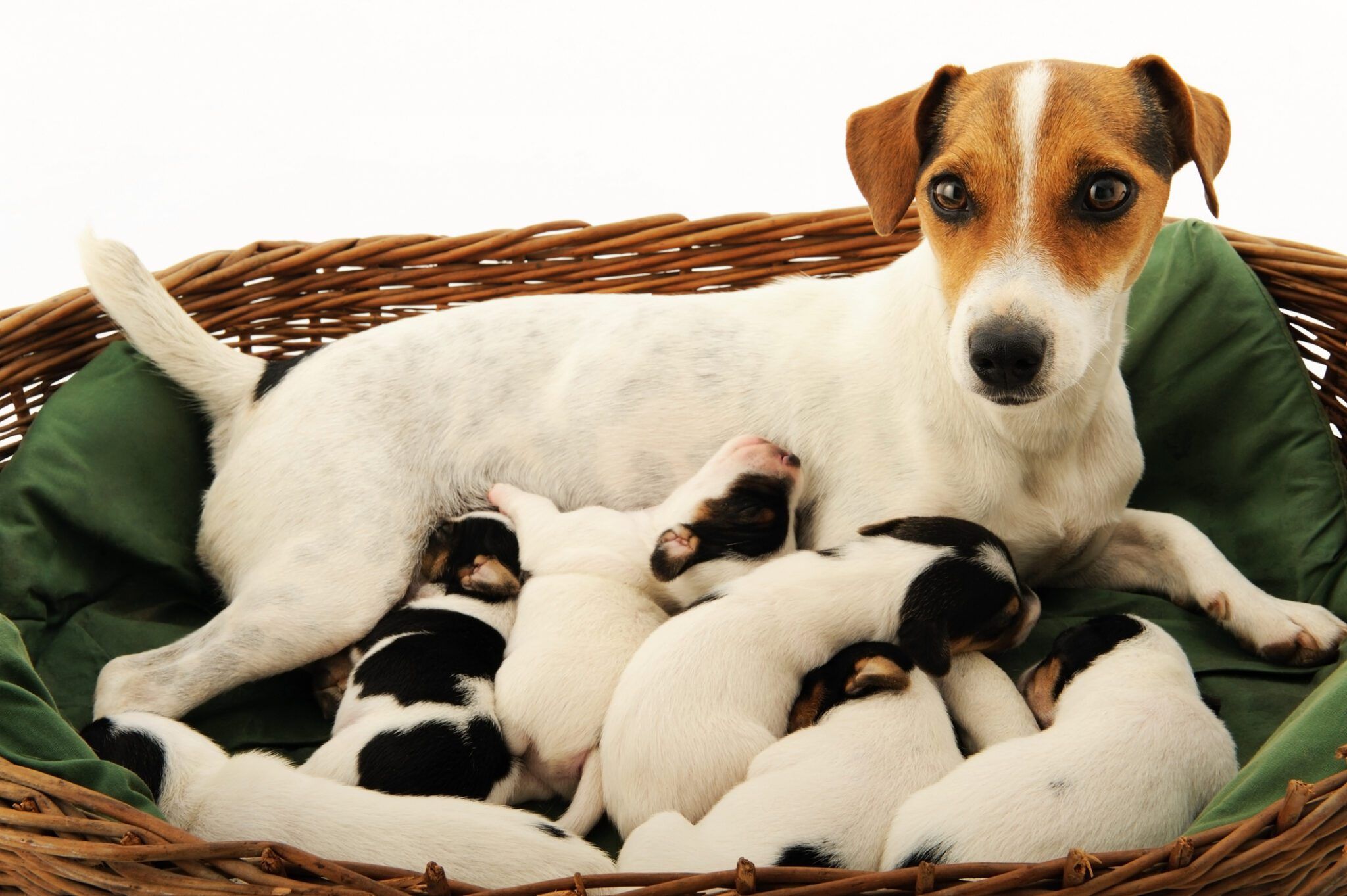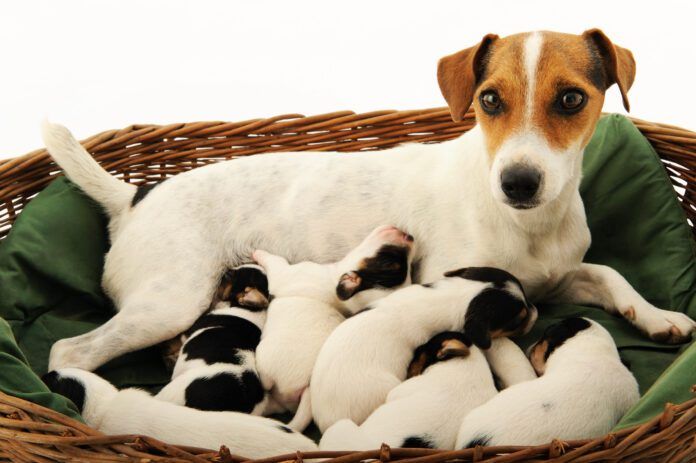Breeding and raising a litter of puppies can be an extremely rewarding experience. It can also be fraught with complications for the puppies and for the mother herself. One of those complications is mastitis.
Mastitis is an inflammatory condition of the mammary glands of intact female dogs. It can involve infection (bacterial or rarely, fungal). Mastitis is most likely to occur in situations of sudden decrease in milk consumption by puppies, for example, after abrupt weaning of the litter, or after death of nursing puppies. Sometimes mastitis can occur in late pregnancy, or in female dogs who experience pseudocyesis (false pregnancy).
Note: Swollen mammary glands in dogs not pregnant may be caused by a variety of problems, including cancer, so the dog should be seen by a veterinarian immediately.
Signs of Mastitis in Dogs
Clinical signs of mastitis involve abnormal changes to the mammary glands: redness or other discoloration, firm swelling, heat, and pain. Milk might be difficult to express, bloody or discolored. In severe cases, there can be fever, ulceration of the mammary glands, development of abscesses, or necrosis. In mild cases, the only clinical sign might be nursing puppies who fail to gain weight.
If mastitis is suspected, a physical exam by a veterinarian is recommended. A complete blood count might be normal in the early stages; more severe cases will result in an increase in white blood cells. Milk cytology will show an increased neutrophil count. Milk should be cultured from an aseptically obtained sample to direct antibiotic therapy.
Treating Canine Mastitis
Treatment of mastitis involves broad-spectrum antibiotics for suspected infection. Antibiotic choice will need to take into consideration whether there are puppies still nursing from the patient, and duration of treatment is usually for two to three weeks.
Cabbage leaf compresses can be used to address inflammation. Raw cabbage leaves can be applied to the affected glands and secured in place with a wrap for two to three hours, then removed for three to four hours (puppies can nurse when the cabbage leaves are removed). Therapeutic cold laser can also be helpful to address inflammation.
For nursing mothers, expressing the milk in the affected gland every six hours can help with swelling and pain. Massage and warm compresses can also help bring blood flow into the affected tissue and break up the congestion within the gland. Pain management should be considered.
If there is systemic illness, hospitalization might be necessary for intravenous fluid therapy and antibiotics. In severe cases, especially those involving gangrene, surgical debridement or mastectomy is necessary.
Note: If the patient is in a false pregnancy, do not express milk, as that will encourage more milk to be produced. Try to remove the objects she treats as her “puppies” to help decrease the production of the hormone prolactin, which also stimulates milk production. There is an oral medication that can help decrease prolactin levels (cabergoline).
Preventing Mastitis in Dogs
Prevention of mastitis involves keeping the nursing environment as clean as possible. It’s wise to try to prevent trauma to the mammary glands by eliminating sharp objects in the whelping box and trimming the puppies’ toenails. Make sure the puppies are nursing from all the teats to keep the glands drained (in small litters, rotate through each of the teats).
Mastitis can be a stressful complication of raising a litter of puppies, but it is rarely life-threatening if long as prompt veterinary attention is sought as early in this disease process as possible. Breeders should monitor the state of the mammary glands starting prior to whelping through past weaning to catch those early clinical signs.


[url=https://vc.ru/u/1047102-airat-rahimzyanov/966635-google-disavow-links-kak-otklonit-plohie-ssylki]Disavow Links[/url] – это весьма значимый инструмент для оптимизацией. Входящие ссылки могут оказывать значительное влияние на позицию сайта в поисковых системах, но это не значит что каждая ссылка работает в вашу пользу. Ссылки с сомнительных, токсичных или низкокачественных сайтов могут навредить сайту, ухудшить рейтинг и даже привести к санкциям от Google.
Чтобы избежать таких проблем, Google предлагает возможность отклонять нежелательные ссылки с помощью Disavow Tools. Этот инструмент позволяет веб-мастерам показать поисковым системам, какие линки не должны учитываться при определении рейтинга. Тем не менее важно помнить, что использование данноного инструмета требует осторожного подхода. Ошибка при работе может привести к потере позиций из-за отказа от полезных ресурсов.
Не знаете, с чего начать? Подробная инструкция по [url=https://vc.ru/u/1047102-airat-rahimzyanov/966635-google-disavow-links-kak-otklonit-plohie-ssylki]ссылке[/url].